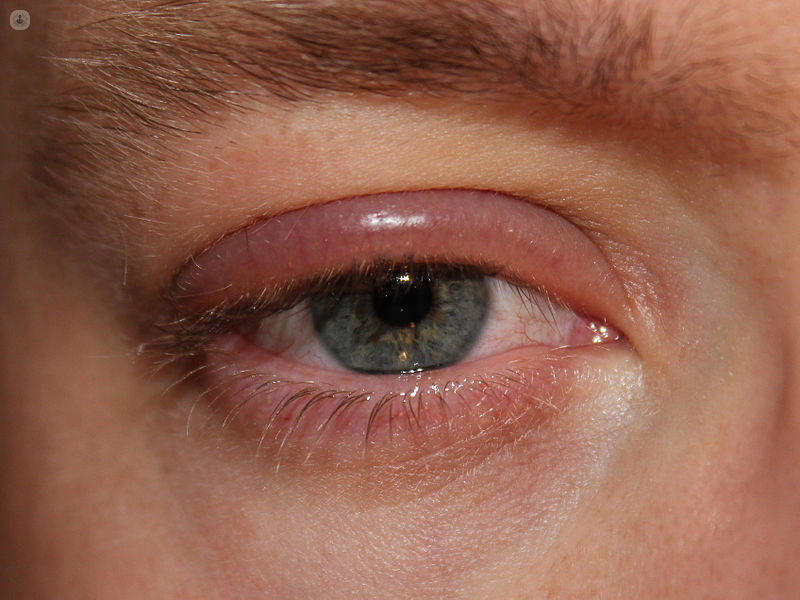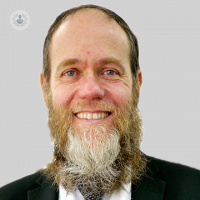What causes blepharitis?
Written by:Blepharitis is a condition which manifests as dry, burning, scratchy, red, and itchy eyes. The eyelids can become sore and you may experience a gritty feeling in your eyes. Who is affected by blepharitis and what causes it? Expert ophthalmologist Mr Myer Mark Yodaiken explains.

Who is affected by blepharitis?
Blepharitis is something which usually affects people between middle age and old age. While generally associated with the older, population, it is slowly becoming an epidemic in young people and it is thought that this may be due to poor and delayed or slower blinking associated with long-term computer and screen use and is also related to contact lens wear.
What is the main cause of blepharitis?
Blepharitis has two main groups, namely:
- Anterior blepharitis: this is mainly due to an infection of the eyelids and eyelashes with deposits of bacteria building up there. These deposits can trickle in to the eye and irritate it, making it uncomfortable and sore. It can also be caused by demodex mite infestation that may be associated with seborrheic dermatitis.
- Posterior blepharitis: this is more accurately known as meibomian gland dysfunction (MGD) and is very poorly understood. It is caused by poor oil secretions with the possible addition of a chronic infection. It can be associated with rosacea, which is a specific type of skin acne. It can sometimes also be caused by demodex mites.
Read more: MGD and blepharitis

Does blepharitis go away or can it be cured?
In the case that the blepharitis is caused by an infection, then it may well go away with proper attention to eyelid hygiene and with the help of antibiotics. If you have rosacea, this may also settle down with a treatment regimen of antibiotics, such as doxycycline, although it can sometimes reoccur after stopping the treatments.
Most meibomian gland disease can be controlled, but unfortunately, only very occasionally can it be completely cured. Rarely will it go away on its own without some sort of intervention. There are various types of interventions, including heat bags, IPL (intense pulsed light), LipiFlow® and meibomian gland probing, all of which can make a significant difference to the disease.
If you are showing symptoms of blepharitis, visit Mr Yodaiken’s Top Doctors profile to book an appointment today.


